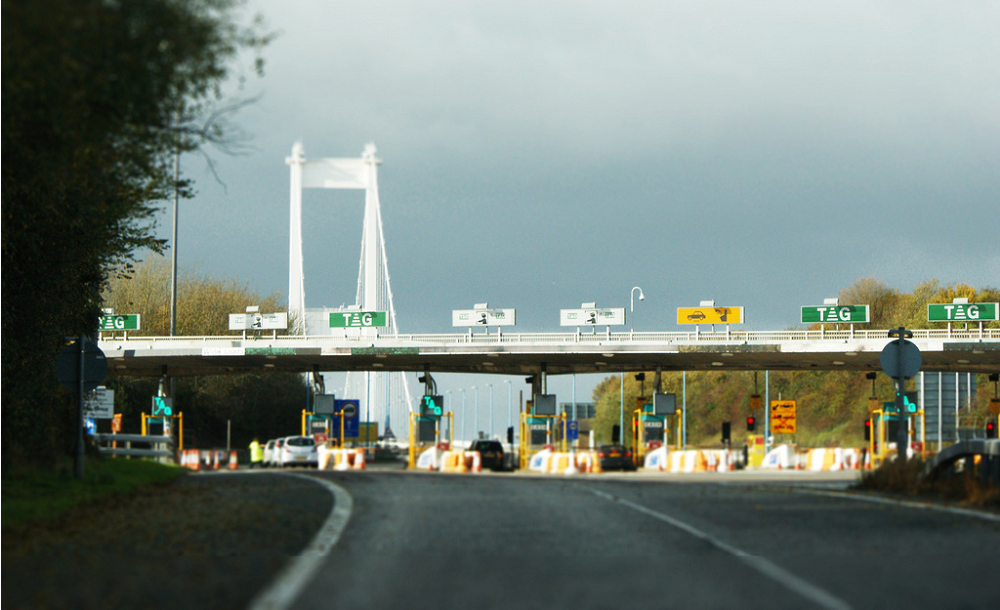Analysis: The Severn Bridge pledge

Tim Richards looks at how abolishing the Severn Tolls could cause problems down the road…
When Theresa May announced her intention to abolish the Severn Bridges tolls if elected Prime Minister, it was probably the cheapest give-away ever because the tolls were due to end anyway when the crossings come back into public ownership next year.
The Bridges have been operated by the Severn River Crossing plc, a private company, in the first Private Finance Initiative (PFI) deal created by the Tory Government in 1992.
Considering that the original cost of construction was £450million and the final income will be over £1billion, it has been a very profitable Private Finance Initiative (PFI) deal for their owners, a consortium of 4 companies:
- John Laing (35% shareholder) a British developer infrastructure operator
- Vinci (35% shareholder), a French concessions and construction company
- Bank of America (15% shareholder)
- Barclays Capital (15% shareholder).
Handing the bridges over to a PFI concession was justified on the grounds that the private sector were taking on the risk of the construction, though what that risk might be has never been properly explained as the volume of traffic has steadily increased over the years and there has been absolutely no risk at all.
Even when corrosion was discovered a few years ago in the cables of the old M48 Severn Bridge, the problem was dealt with by the Department of Transport which spent about £20 million to fix them.
The PFI scheme will end in early 2018 and the Bridges will come back into public ownership once the concession has reached its target of £1.029 billion income (in July 1989 prices).
What would happen then was the subject of a consultation document issued in January this year which asked the no-brainer question, do you agree with the proposed reductions in tolls?
The consultation document considered the idea of getting rid of the toll booths and introducing two-way free-flow charging by use of cameras and pre-payment and one idea was to not charge anything at all at night.
So, ironically, Theresa May’s decision to abolish the tolls altogether if elected is yet another U-turn, but not really that surprising as all the parties in the Welsh Assembly have argued for it.
But there is a twist in the tail of this plan – and that is the knock-on-effect on the westbound M4 as the consultation document points out that reducing the tolls will lead to a traffic growth of 45%.
Abolishing the tolls would make volume of traffic grow even more but while the Severn Bridges will be handed over to Highways England, how to deal with the bottleneck at the Brynglas tunnels in Newport would be the Welsh Government’s headache.
It is likely to put even more pressure on them to build a bypass round Newport.
Support our Nation today
For the price of a cup of coffee a month you can help us create an independent, not-for-profit, national news service for the people of Wales, by the people of Wales.






Good read and obviously there will be problems down the road. Keep the tolls and the Senedd should get the revenue because, like you pointed out and as we know the road can only just take the volume of traffic.
Not sure by-passes are the answer because we will run out of space soon with more productive land lost.
When the Assembly voted on this, it was pointed out that removing the tolls would increase traffic. More traffic means more pollution and worse health for all of us. In my opinion Lee Waters was exactly right when he said that the tolls should be retained, and the money spent upgrading the public transport system.
Annwyl Anne, I think you are right and probably the only person seeing what is and very well may happen. Everything about our country is tied up with England from the weather to the waste of money. The future is not in no tolls, to encourage business, not in more roads and definitely not with England. Sadly, it will mean what the English do everywhere move in, take over and screw it up! The trouble we have as a nation, which is being played out here and elsewhere on social media, is that too many cannot see a future without… Read more »
but Lee waters fails as a labour person to see the profits given to corporations and only to the English side.
The tolls have cost Wales billions in business set ups which have chosen Bristol over Wales
No tolls mean more house building and more commuters mostly from England. Would this mean a further dilution of Welsh Culture?